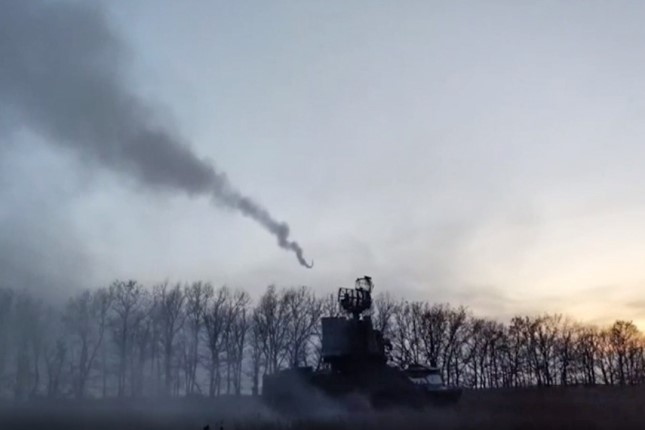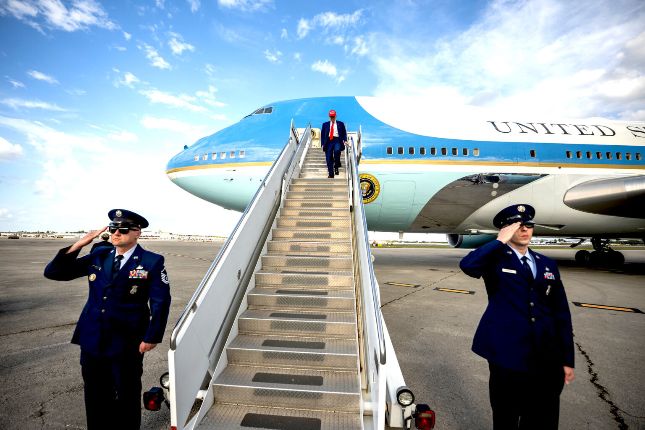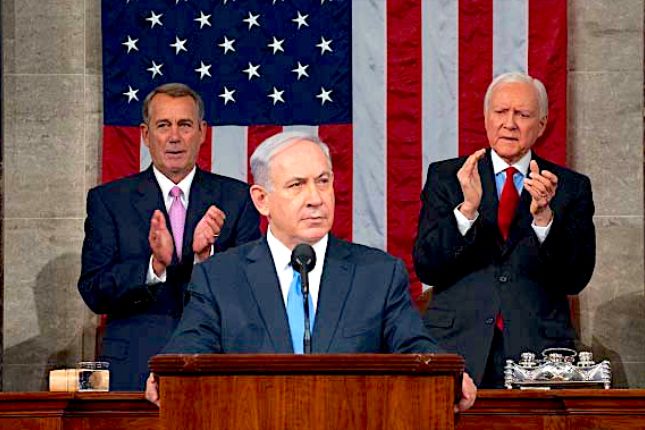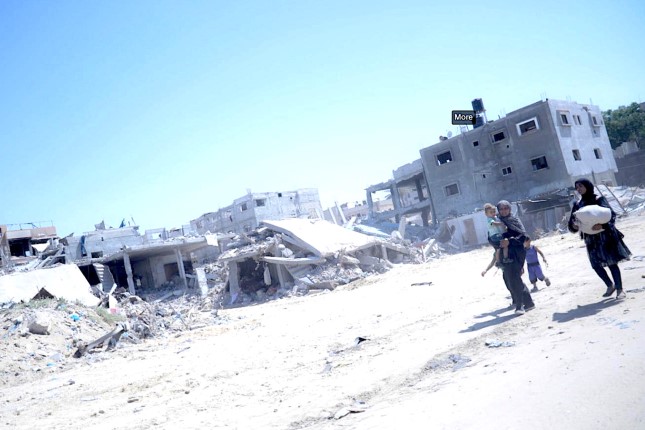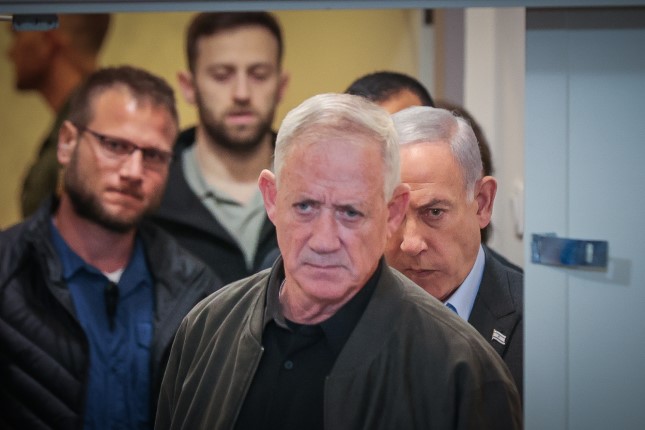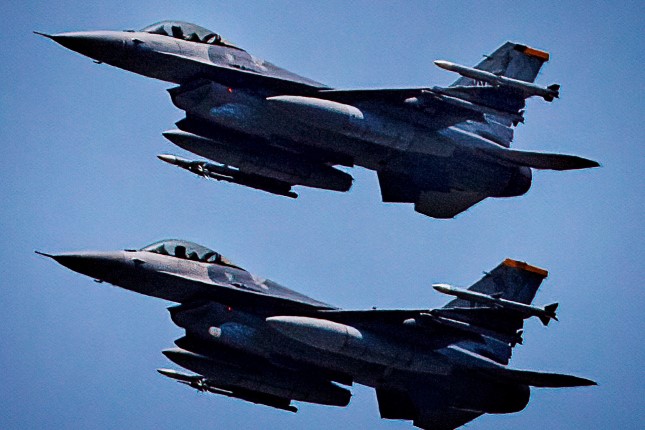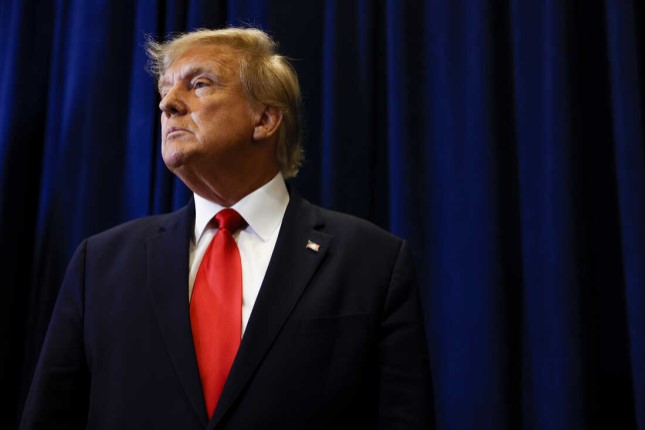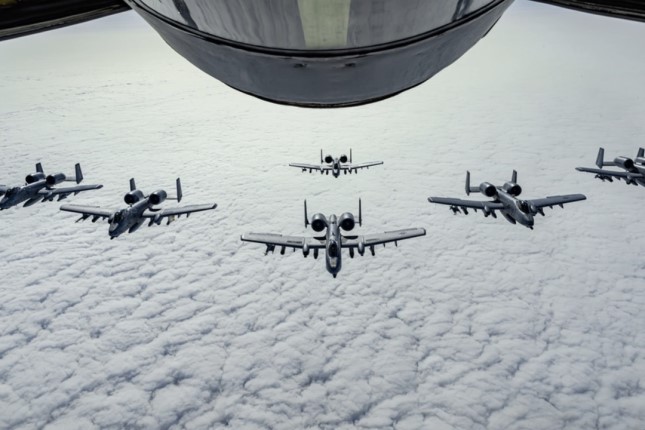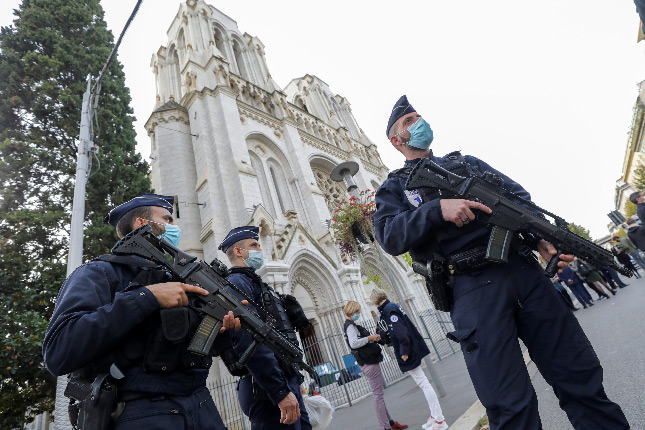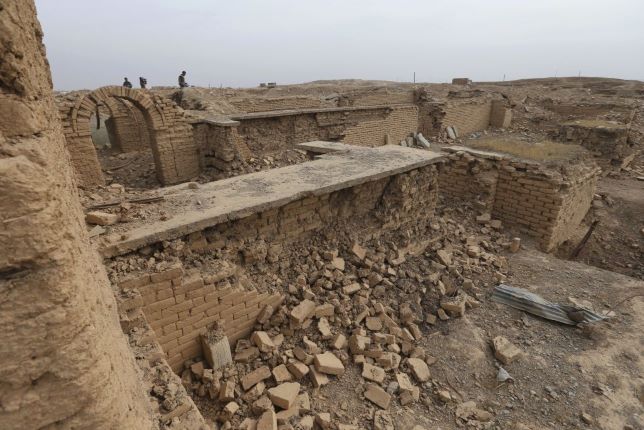Although some Western media view Russia's latest control of Maryinka in eastern Ukraine, which is a small town in the Donetsk region, as Moscow's "most significant battlefield gains since May," some Chinese experts believe that this single progress will not provide the means to break the military stalemate between the two sides that has persisted for nearly two years. When the world is forecasting what could happen in the Russia-Ukraine conflict in 2024, Chinese experts said there could be "more room for imagination" after the US presidential election in next November.
Russian Defense Minister Sergei Shoigu told Russian President Vladimir Putin on Sunday that Russian forces have gained full control of Maryinka, Reuters reported on Monday. Putin said control of the town, which lies some five kilometers southwest of the city of Donetsk, will allow Russian forces to move enemy combat units away from Donetsk, according to the media report.
While Reuters said that if Russia's claims about taking over the town prove true, it would be Moscow's most significant battlefield gains since May when Russian troops captured Bakhmut.
However, Ukrainian military spokesperson Oleksandr Shtupun on Monday denied Russia's claim, saying that battles for Maryinka continue, the Xinhua News Agency reported.
"It's difficult to break the military stalemate between Russia and Ukraine by taking control of one town. Also, based on the daily casualty numbers released by the Ukraine side, the Russian military's approaches in places like Bakhmut and Maryinka, where they launched offensives without considering casualties, is not sustainable," Zhang Hong, an associate research fellow at the Institute of Russian, Eastern European and Central Asian Studies of the Chinese Academy of Social Sciences, told the Global Times on Monday.
Still, some experts believe that the tense and protracted battlefield situation has not changed, while Russia holds the initiative with the ability to control the pace of engagement based on its stable economy, military-industrial complex and efficient social operations.
"Ukraine, on the other hand, can only respond reactively. However, if we consider the scenario where Russian forces enter a broader operational area, it may have more significant propaganda value," Cui Heng, a scholar from the Shanghai-based China National Institute for SCO International Exchange and Judicial Cooperation, told the Global Times on Monday.
The counteroffensive in Avdiivka indicates that Russia also lacks the capability to break through fortified defenses without significant casualties, Cui said.
Between November 22 and 24, Russia unleashed what Ukraine said was the third major attempt to capture Avdiivka in two months, sending about 50 assaults supported by armor, Al Jazeera reported on November 29. And on one day alone, Ukraine's military said it had "eliminated" 1,100 Russian soldiers and 30 tanks, the media report said.
"Such protracted warfare between Russia and Ukraine, which began in February 2022, has seen some changes up to the present. One major change is the decrease in Western assistance to Ukraine, which has shifted Ukraine from an offensive to a defensive stance, thereby increasing Russia's advantage," Zhao Huirong, an Eastern European studies expert from the Chinese Academy of Social Sciences, told the Global Times on Monday.
This change has had a noticeable impact on the battlefield situation, with Russia appearing more confident and proactive while Ukraine has become relatively more passive due to ammunition shortages, but this does not necessarily signify a turning point or imminent peace negotiations, Zhao said.
Despite reduced assistance, Ukraine has adjusted its strategy to prioritize defense and still possesses some reserves. Therefore, this attritional warfare is likely to continue for some time. And Russia is also adopting a strategy for prolonged conflict, she added.
Also on Tuesday, Ukraine's air force said that it had destroyed a major Russia landing ship stationed in the Crimean waters, and Kiev's assault sparked a fire in the port of Feodosia, according to Reuters.
Targeting key objectives during this attritional warfare may increase in the future, as Ukraine, in face of an ammunition shortage, must achieve some successes to continue receiving Western assistance. Therefore, their limited ammunition needs to be utilized in critical areas where it can have a greater impact, Zhao noted.
"Some of these targets undoubtedly include Crimea, which is of significant importance. Also, Ukraine is increasingly relying on the production of drones due to limitations in its military-industrial capabilities," she said.
While the world is anxiously observing how the Russia-Ukraine war that has lasted for 671 days by Tuesday will evolve in 2024, some US media such as CNBC said Ukraine's alliances with the US and Europe could be destabilized further in the next year, putting the future of military aid packages in doubt.
"As for the possibility of negotiations between Russia and Ukraine in 2024, it doesn't seem very hopeful," Zhang said, noting that the ultimate resolution of the conflict depends on whether Russia and the US can find common interests or compromises.
Until the Biden administration makes significant policy changes, which seems unlikely before the US presidential election, and if the US does not shift its stance on the Russia-Ukraine war, it implies that negotiations between Ukraine and Russia will not progress, he noted.
Apart from factors related to the US elections, the situation on the battlefield is also a consideration for peace talks, Zhao noted.
"If, on the Ukrainian side, assistance decreases, and the battlefield situation becomes extremely unfavorable, if there is a scenario where they retreat, and Russian forces advance,
I believe that the Western countries might pressure Ukraine to halt the fighting and engage in cease-fire negotiations," she said. However, peace negotiations are unlikely because of the significant and sharp differences between the two sides regarding territorial issues, but the possibility of cease-fire negotiations may exist, the expert noted.
Photo: An Osa surface-to-air missile system is pictured on the Donetsk direction of Russia's special military operation, December 26, 2023 © VCG.
Source: The Global Times.
